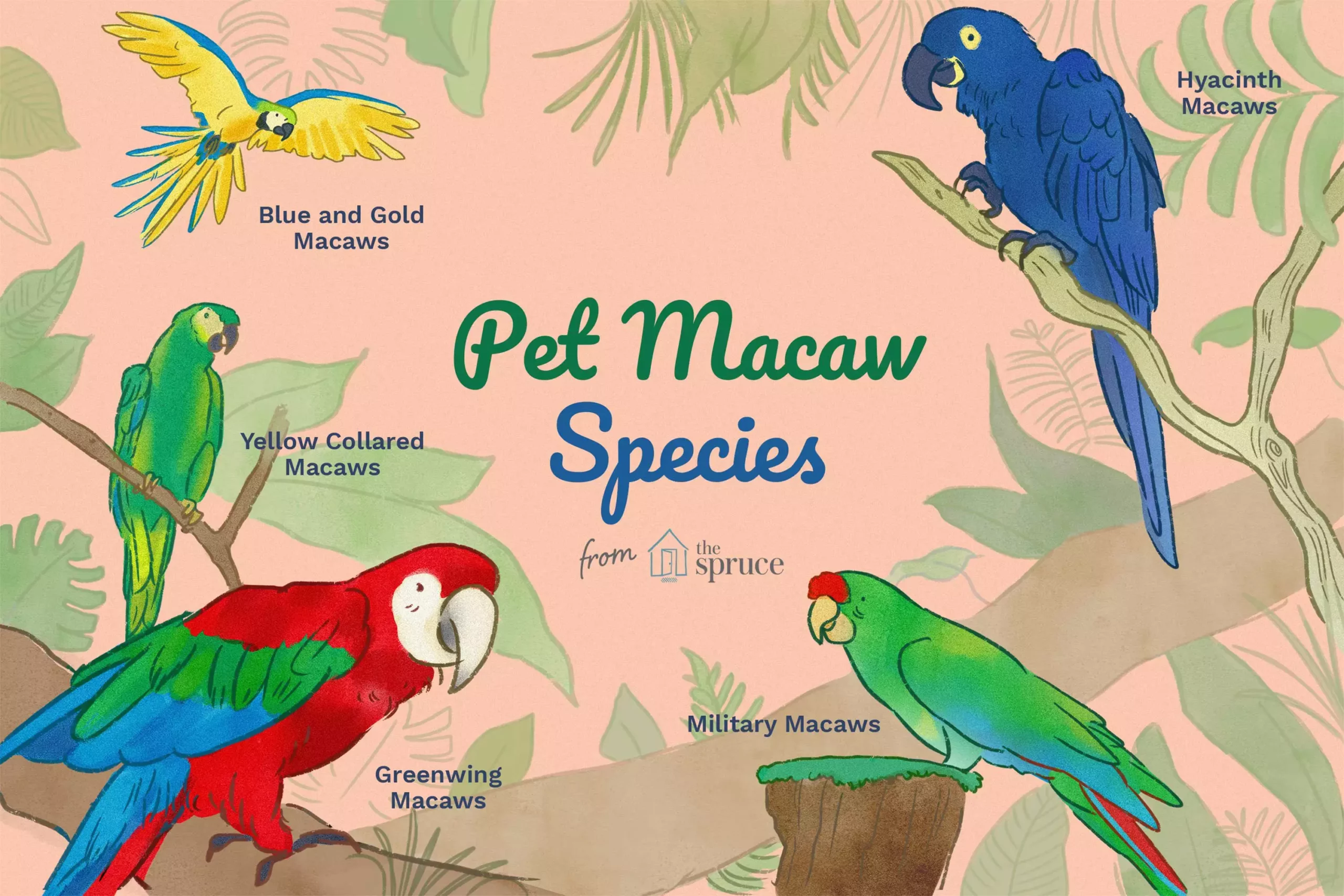Macaws are some of the most stunning and intelligent birds in the avian world, captivating enthusiasts with their luminous colors and engaging personalities. However, potential owners should approach the decision to adopt one with caution and thorough understanding. Not only do macaws come in various species, each with unique traits, but their care requirements can be both demanding and rewarding. A well-informed approach can lead to a fulfilling companionship, but neglecting their complex needs can result in challenges for both the bird and the owner.
The Allure of Macaws: Beauty Meets Complexity
Macaws, such as the blue and gold variety, are notably large and strikingly beautiful, growing close to three feet long from beak to tail. Their size is matched only by their vibrant colors, which command attention in any setting. However, prospective owners should recognize that these birds are not for those new to aviculture. Much like having a dog or cat, owning a macaw requires a significant investment of time and energy. They thrive on social interactions and vocalization, often making sounds that can be startling to unsuspecting neighbors. Their loud calls serve essential social functions in the wild but can quickly become overwhelming in quieter residential areas.
The Responsibilities of Ownership
When selecting a macaw, one must consider their behavior and social needs. For example, green-winged macaws are affectionate and responsive to training, yet they also require ample attention and a supportive environment to develop strong bonds with their human counterparts. Such birds flourish when engaged consistently; neglect can lead to behavioral issues, including screaming or destructive chewing habits. Prospective owners must be prepared to dedicate multiple hours each day to companionship and enrichment activities.
Smaller species like Hahn’s macaws may appeal to those yearning for a slightly more manageable bird. These diminutive macaws can become excellent talkers and are known for their easygoing nature while still requiring bonding time with their owners. Their training needs are less intense compared to larger macaws, making them a suitable option for first-time bird owners who recognize the importance of engagement.
Understanding Larger and More Complex Species
In contrast, Hyacinth macaws are considered remarkable yet challenging pets. As the largest macaw species, they demand an extraordinary amount of attention and care. Individuals interested in Hyacinth macaws must possess a deep understanding of avian care and the patience required to cultivate a positive bond with a bird that can exhibit demanding behaviors. The allure of their majestic appearance often masks the reality of their intensive care needs.
Hybrid macaws, which can exhibit a broad range of characteristics derived from their parent species, require equally experienced owners. These birds are the result of intentional breeding for specific traits and can display a blend of behaviors that can vary widely, making them unpredictable companions without proper socialization.
Among the various macaw species, Illiger’s macaws stand out for their playful disposition and affectionate connections with owners when nurtured properly from a young age. They embody the essence of joyfulness, showcasing active engagement through training and social interactions. However, their need for mental stimulation is paramount, as boredom can lead to unwanted behaviors. Thus, enriching their environment with toys and interactive activities is vital for their well-being.
Military macaws also display remarkable sociability and curiosity, making them another option for individuals seeking interactive pets. Their need for vigorous play and social contact underscores the necessity for commitment and time from owners, who must steer clear of long periods of solitude for these birds.
Scarlet and severe macaws further embody the diverse behavioral traits seen across the species. Scarlet macaws, known for their vibrant plumage and social tendencies, thrive on companionship but are just as prone to boredom and noise if not given adequate stimulation. Similarly, severe macaws quickly charm their human companions, proving to be capable of impressive verbal skills with proper encouragement. They showcase an endearing vulnerability, often seeking affection while also living up to their reputation for mischief.
Lastly, yellow-collared macaws add another layer of intrigue, recognized for their intelligence and resourcefulness. While they often seek human attention, they also can exhibit escapist tendencies, necessitating ensuring their surroundings are secure.
Deciding to bring a macaw into your home is not merely a decision about aesthetics; it is about embracing the complex needs of a vibrant, intelligent being. Understanding the specific characteristics and care requirements of different macaw species is essential to foster a healthy and rewarding relationship. Owners must prioritize social interaction, training, and enrichment, ensuring the bird’s physical and psychological health while creating a partnership based on mutual affection and respect. For those willing to invest the time and effort, a macaw can be a lifelong companion, offering joy and companionship that is both unique and fulfilling.

